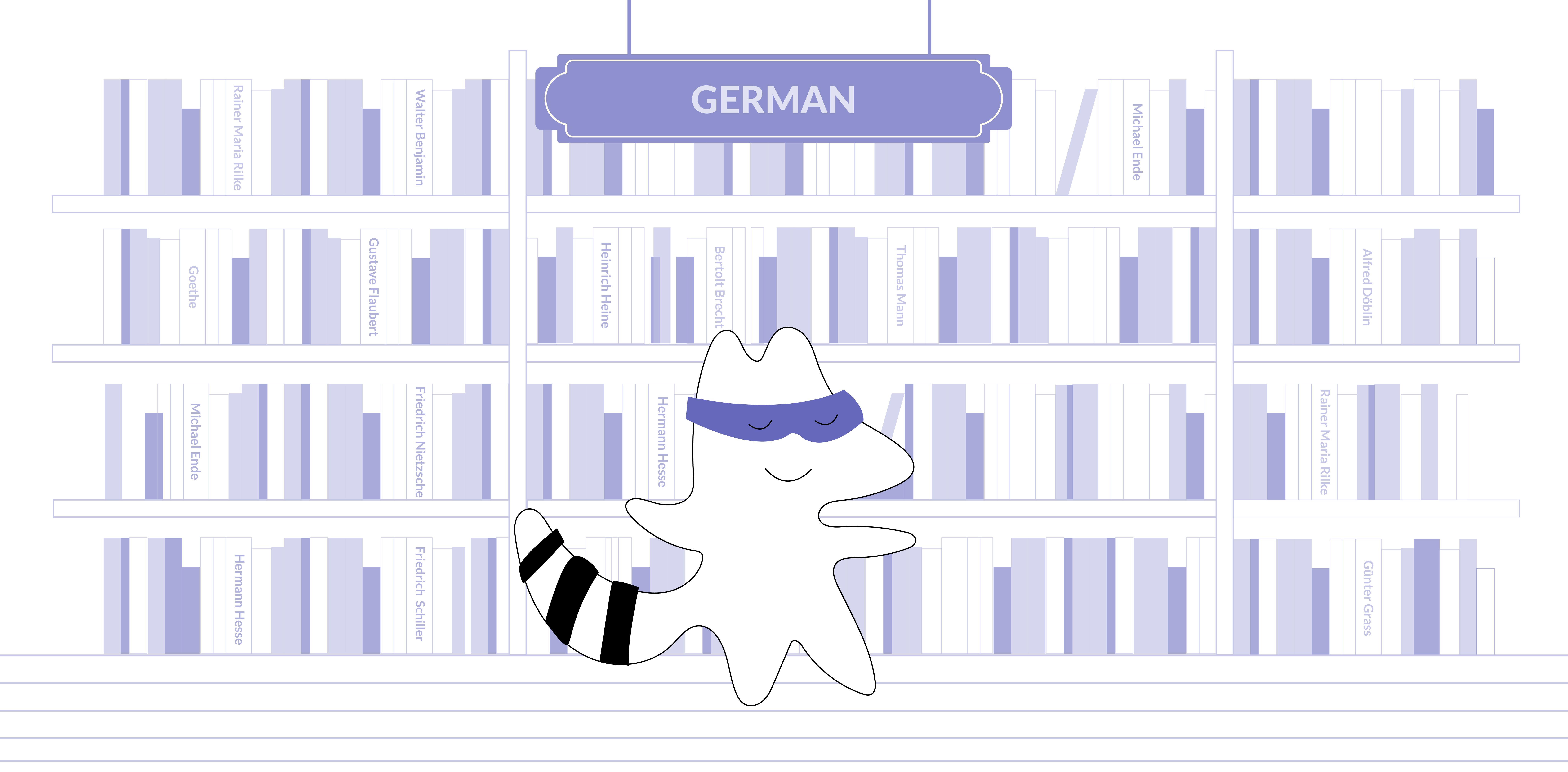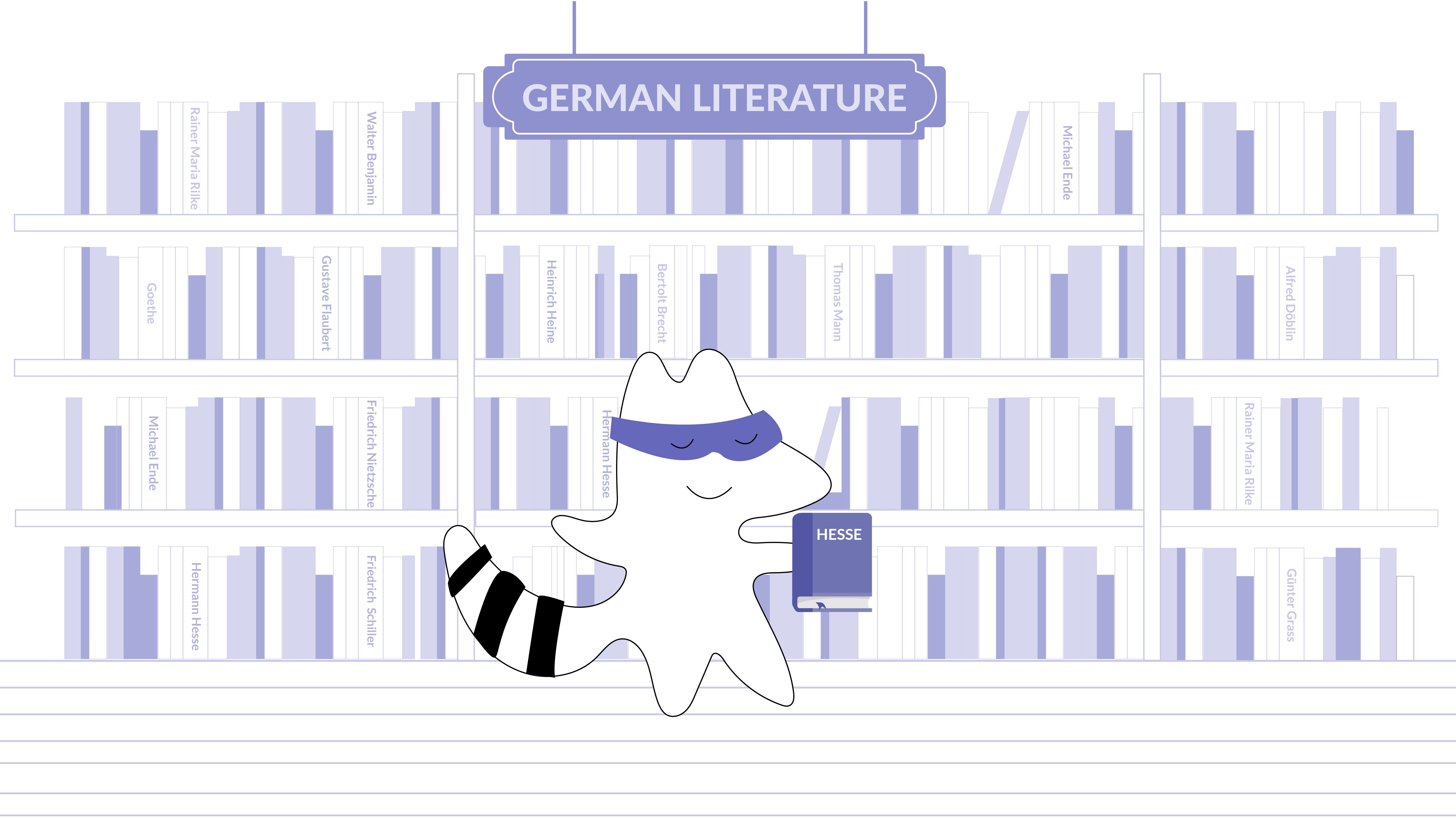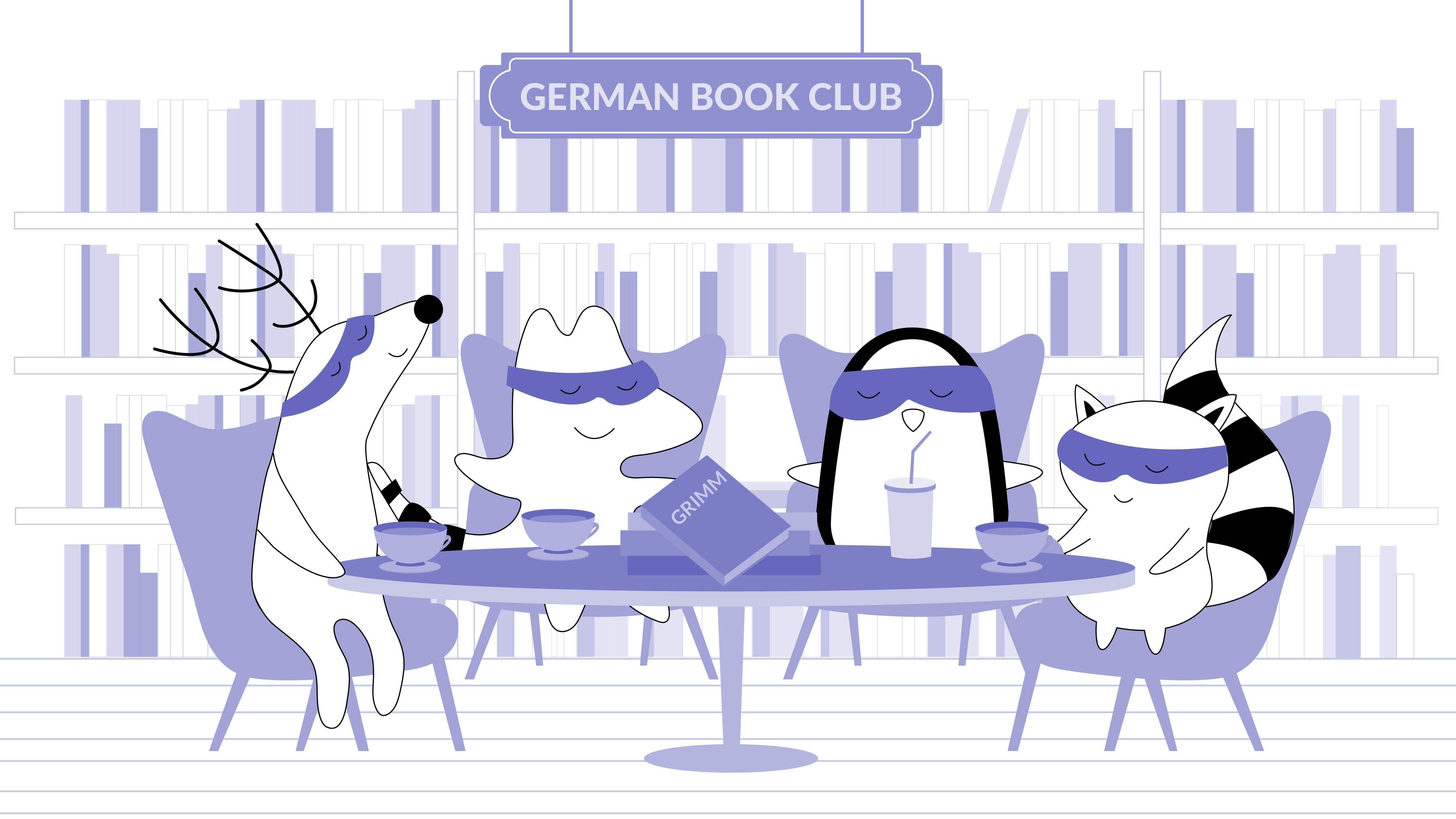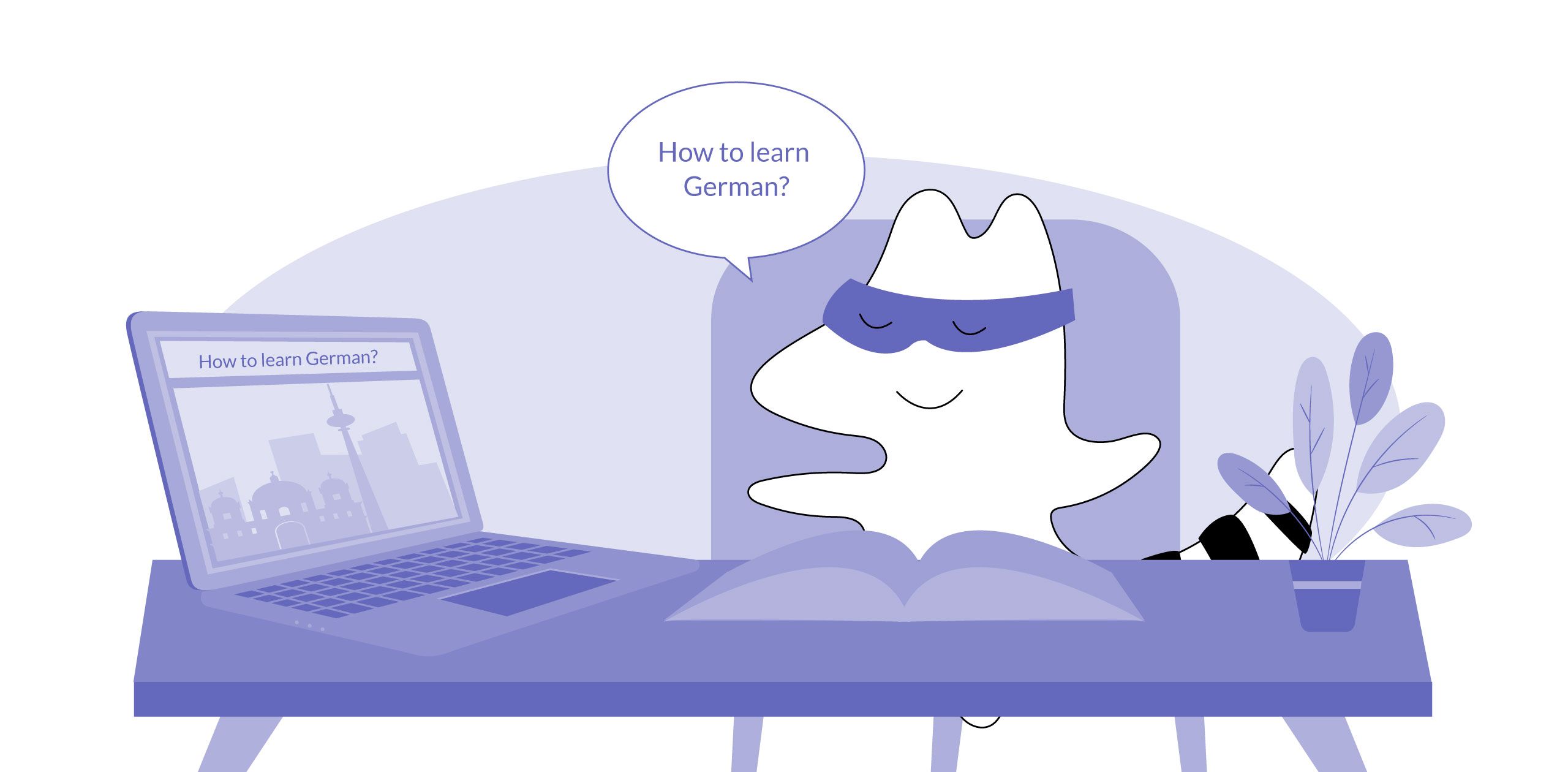
Mastering the German language can be a daunting task, but who says it has to be mundane?
Welcome to the world of learning German through reading — a novel (see what we did there?) approach that allows you to dive into rich literary treasures while expanding your German vocabulary and improving your grammar, not to mention boosting your German reading skills.
In this article, we will explore the benefits of learning German by reading, offer suggestions for books to get you started, and provide helpful tips for making the most of this immersive experience. Let’s dive straight into it!
Learn German with Langster
Choosing the Right Material
Before embarking on your linguistic journey, it’s crucial to select reading materials that are both engaging and suitable for your level.
As a beginner, start with children's books or German short stories that use simple sentence structure and limited vocabulary. Gradually progress to more advanced texts as your confidence grows.
Alternatively, you can read German newspapers and magazines. Look for books and other German texts that spark your interest, whether it's mystery, romance, or science fiction. This will make the reading process enjoyable and motivate you to stay committed.
When considering which books to read, don't shy away from translations of your favorite works, be it the Harry Potter series or one of Agatha Christie’s timeless detectives. Familiarity with the plot and characters will help you focus on understanding the language rather than getting lost in the story.
Besides, observing how your favorite scenes are translated into a foreign language can be an enlightening experience in itself.

Embracing the Culture
Reading German literature provides a unique opportunity to immerse yourself in the culture and history of the language. Classic authors such as Goethe, Schiller, and Kafka offer deep insights into the German psyche, while contemporary writers like Bernhard Schlink and Jenny Erpenbeck explore modern themes and societal issues.
Understanding cultural references and idiomatic expressions will not only enhance your language skills but also enrich your appreciation of German culture. Here are a few additional benefits:
Exploring German History through Literature
German literature is steeped in history, reflecting different eras, movements, and historical events that have shaped the country.
By reading works from various time periods, you'll gain a better understanding of Germany's past and the factors that have influenced its development. From the Enlightenment era masterpieces of Goethe to the post-war reflections of Heinrich Böll, each author offers a unique perspective on their nation's history.
As you delve deeper into these texts, you'll find yourself developing a more profound connection to German culture and society.
Discovering Regional Diversity
Germany is a country rich in regional diversity, with each state boasting its own distinct dialects, customs, and traditions. Reading literature from different regions allows you to explore this variety and develop an appreciation for the nuances within the German language.
For example, you might read works by Swiss authors like Hermann Hesse or Austrian writers like Thomas Bernhard to familiarize yourself with regional dialects and expressions from other German-speaking countries. Engaging with these diverse voices will enhance your linguistic repertoire while broadening your cultural horizons.
Uncovering Contemporary Issues
Modern German literature addresses a wide range of contemporary issues relevant to both Germany and the wider world.
From tackling themes such as immigration and identity in Jenny Erpenbeck's Gehen, ging, gegangen to exploring the intricacies of human relationships in Daniel Kehlmann's Die Vermessung der Welt, contemporary German literature provides a valuable window into the nation’s present-day concerns and aspirations.
By engaging with these contemporary topics, you'll deepen your understanding of the German-speaking world and its place in today's global society.
Appreciating German Humor and Wit
German literature is not only thought-provoking but can also be entertaining, showcasing the humor and wit that are integral to the culture. Authors like Heinrich Heine, Erich Kästner, and Loriot have a knack for clever wordplay and satire, providing readers with amusing insights into German society.
As you become more familiar with the language, you'll begin to appreciate these subtle nuances and discover the joy of German humor.
All in all, embracing German culture through literature will significantly enhance your language skills while deepening your appreciation for this fascinating country. By exploring historical contexts, regional diversity, contemporary issues, and humor, you'll develop a well-rounded understanding of the German-speaking world and its rich literary heritage.

Practical Tips & Reading Techniques for German Language Learners
As you embark on this literary adventure, it's essential to develop effective reading techniques that cater to language learning.
Start by setting realistic goals for each reading session — such as focusing on understanding the main ideas or identifying new vocabulary words. Don't worry about understanding every single word; instead, try to grasp the overall context.
At this point, you should decide which approach to reading suits you best: extensive or intensive?
Extensive Reading vs. Intensive Reading
There are two distinct approaches to reading in a foreign language: extensive reading and intensive reading.
Extensive reading involves reading large amounts of material quickly without focusing too much on every word or sentence. The goal is to develop overall language fluency and comprehension skills.
This approach can be useful for more advanced learners who want to read authentic texts, including novels and newspapers, and who are comfortable with mostly inferring meaning as they read.
Intensive reading, on the other hand, is a slower, more deliberate approach designed to help learners develop specific language skills, such as grammatical concepts and vocabulary knowledge.
It often involves breaking down a text sentence by sentence or paragraph by paragraph, focusing on the precise meaning of every word. This approach can be useful for beginning learners who need to build basic vocabulary and grammar knowledge and for more advanced learners who want to improve specific language skills.
Ultimately, the approach you choose should depend on your goals, skill level, and personal preferences.
Incorporating Grammar and Vocabulary Exercises
While reading is an excellent way to learn organically, it's beneficial to supplement this approach with targeted grammar and vocabulary exercises.
After completing a chapter or short story, take some time to analyze the text more closely. Identify grammatical structures that you find challenging, and practice constructing similar sentences.
Creating Vocabulary Lists
Creating a personal dictionary can also be helpful when learning German through reading. Jot down unfamiliar words or phrases as you encounter them, and look up their meanings afterward. Then, organize these words by theme or context. Regularly reviewing these lists will help reinforce new vocabulary and improve retention.
Grammar Drills
Once you've identified a particular grammar concept that you're struggling with, incorporate focused practice into your study routine. This can include completing grammar exercises in workbooks, working through a German grammar textbook, or using online resources such as our Langster app.
By consistently practicing these grammatical structures, you'll eventually gain confidence in your ability to recognize and apply them in your reading.
Rewriting Sentences
A helpful exercise for reinforcing grammar and vocabulary is rewriting sentences from the text in different ways. For example, if a sentence is written in the passive voice, try rewriting it in the active voice or vice versa. You can also experiment with changing the tense or incorporating new vocabulary words.
This practice will help you become more comfortable with manipulating German sentence structures and improve your overall language fluency.
Creating Your Own Stories
Taking inspiration from the texts you read, try writing your own short stories or essays in German! Use the new vocabulary and grammar concepts you've learned to create original content.
This exercise will not only help solidify your understanding of the language but also encourage creative thinking in German.
Discussing Texts with Others
Join a language exchange group, a book club, a conversation partner program, or an online community where you can discuss your readings with fellow German language learners or native speakers.
Exchanging ideas, discussing plot twists, and debating character motivations will encourage you to think critically in your target language while fostering camaraderie among language enthusiasts.
Reading Aloud for Pronunciation Practice
Developing proper pronunciation is a vital aspect of learning any language. Try reading passages aloud to practice your speaking skills. Focus on the rhythm, intonation, and accentuation of the words.
Recording yourself can also be helpful for identifying areas of improvement and tracking your progress over time. As your pronunciation and confidence improve, you’ll sound more and more like a native speaker!
By incorporating these grammar and vocabulary exercises into your reading routine, you'll not only enhance your understanding of German literature but also develop a more robust foundation in the language. Remember to be patient with yourself, and celebrate your progress as you continue to learn and grow.

Langster’s Top Picks
Finding the right books is crucial to ensure that you have an enjoyable experience while learning German through reading. Here are some recommendations tailored for beginner and intermediate learners to help you embark on your literary journey:
Beginner-friendly:
- Oh, wie schön ist Panama by Janosch. This charming children's book revolves around the adventures of a tiger and a bear as they search for the land of their dreams. With simple language and an engaging storyline, this book makes a delightful introduction to reading in German.
- Der kleine Prinz by Antoine de Saint-Exupéry (translation). As one of the most translated books globally, The Little Prince is a timeless tale that resonates with readers of all ages. The German translation retains the beauty of the original text while providing an accessible reading experience for beginners.
- Momo by Michael Ende. A beloved children's classic in Germany, Momo tells the story of a young girl who saves her town from time-stealing creatures. The book is written in straightforward language, making it a suitable choice for new learners.
Intermediate Level:
- Tschick by Wolfgang Herrndorf. A popular coming-of-age novel, Tschick follows two teenage boys on a wild road trip across Germany. Featuring colloquial language and contemporary themes, this book will help you familiarize yourself with everyday German expressions.
- Die Verwandlung by Franz Kafka. Although Kafka's works can be challenging, The Metamorphosis is relatively short and uses simpler language than his other novels. As you follow the surreal story of a man who wakes up transformed into a giant insect, you'll be exposed to more complex sentence structures and vocabulary.
- Der Vorleser by Bernhard Schlink. The Reader is a compelling novel that delves into themes such as morality, love, and the repercussions of Germany's past. This book is well-suited for intermediate learners looking to expand their vocabulary and engage with more complex ideas in German literature.
For more recommendations, make sure to check out our separate post on the best books to learn German.
Remember to choose books that align with your interests and language level. Mixing familiar translations with original German works will help you explore various writing styles and themes while gradually improving your language skills. Happy reading!
The Bottom Line

Learning German through reading can be rewarding, combining language acquisition with cultural exploration. You'll unlock new linguistic horizons while expanding your literary repertoire by carefully selecting materials, employing effective reading techniques, and engaging with fellow readers.
So, go ahead — pick up that novel, and embark on a thrilling adventure through the German language!
Learn German with Langster









